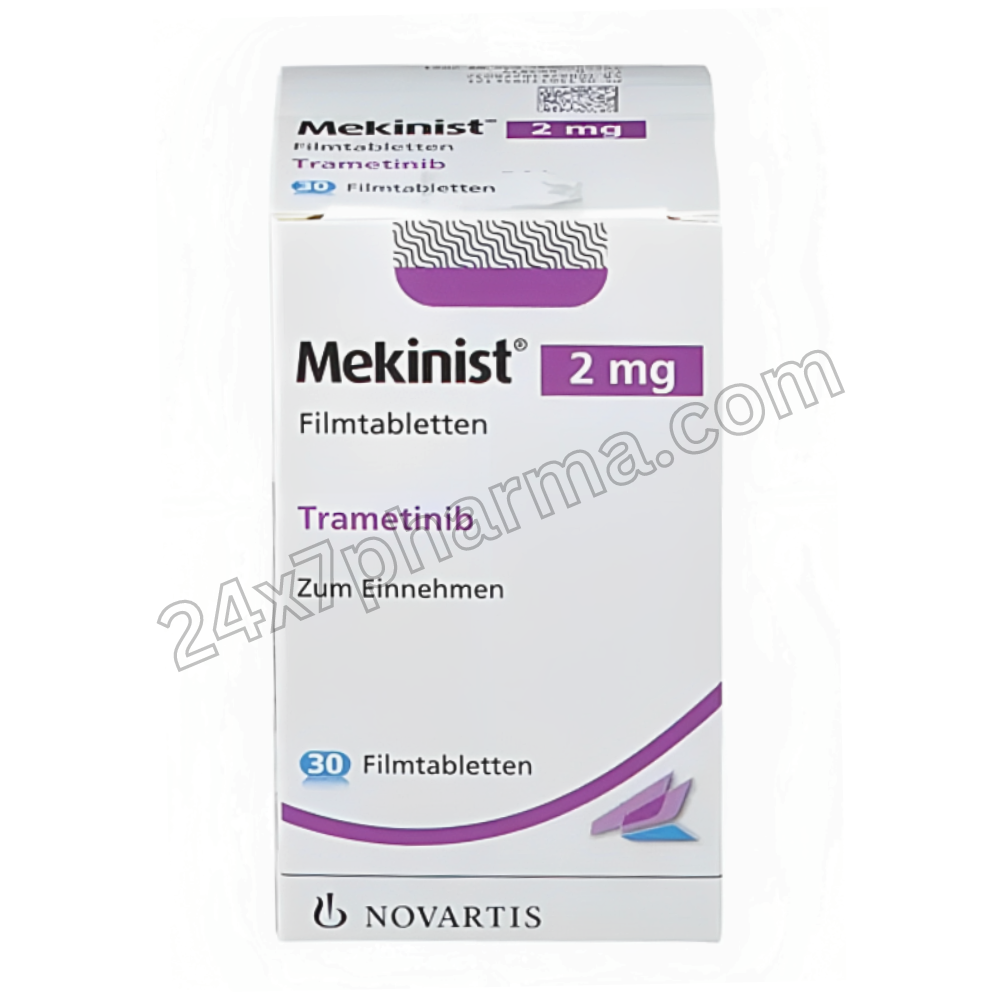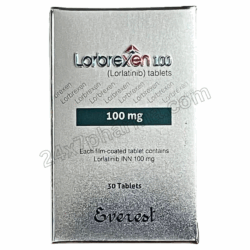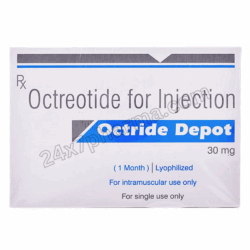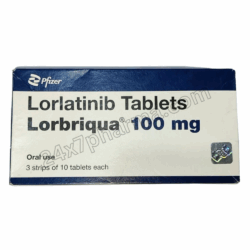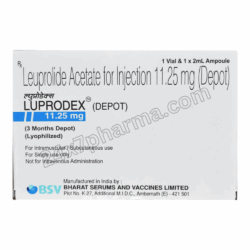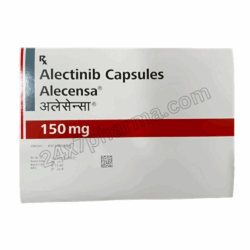About Mekinist 2mg Tablet
Mekinist 2mg Tablet is a prescription medication used in the treatment of certain types of cancer, specifically melanoma. Mekinist 2mg Tablet is designed to inhibit the growth and spread of cancer cells by targeting specific proteins and pathways involved in cell proliferation.
Uses Of Mekinist 2mg Tablet
- Unresectable or Metastatic melanoma
Benefits Of Mekinist 2mg Tablet
In Unresectable or Metastatic melanoma
Mekinist 2mg Tablet is indicated for the treatment of unresectable or metastatic melanoma, which is a form of skin cancer. It is specifically used for patients whose melanoma cells have specific genetic mutations known as BRAF V600E or V600K. These mutations drive the uncontrolled growth and division of cancer cells.
Mekinist 2mg Tablet is often prescribed in combination with another medication called Dabrafenib. The combination of Mekinist and Dabrafenib is used to target multiple points in the MAPK signaling pathway to inhibit cancer cell growth and improve the treatment outcomes for patients with this type of melanoma.
It’s essential to note that the use of Mekinist 2mg Tablet should be determined by a qualified oncologist or healthcare provider who will assess the patient’s specific condition, genetic mutations, and treatment plan to ensure the best possible outcomes.
Side Effects Of Mekinist 2mg Tablet
Mekinist 2mg Tablet, like many medications, can have side effects. It’s essential for patients to be aware of potential side effects and discuss them with their healthcare provider.
Common side effects of Mekinist
- Fever
- Chills
- Rash
- Diarrhea
- Nausea
- Fatigue
- Swelling and Edema
- Headache
- High Blood Pressure
- Visual Disturbances
Precautions And Warnings
- Tell your healthcare provider about all other medications, supplements, and medical conditions you have before starting Mekinist 2mg Tablet.
- Inform your doctor if you are pregnant, planning to become pregnant, or breastfeeding.
- Do not alter the dosage or stop taking Mekinist 2mg Tablet without consulting your healthcare provider.
- Regular follow-up visits with your healthcare provider are necessary to monitor your progress and assess potential side effects.

